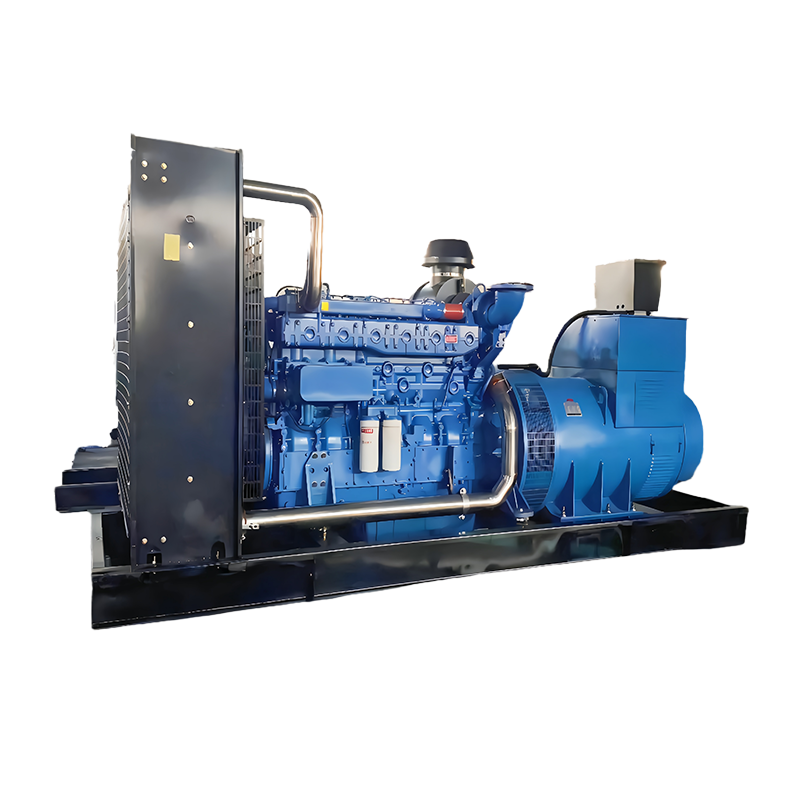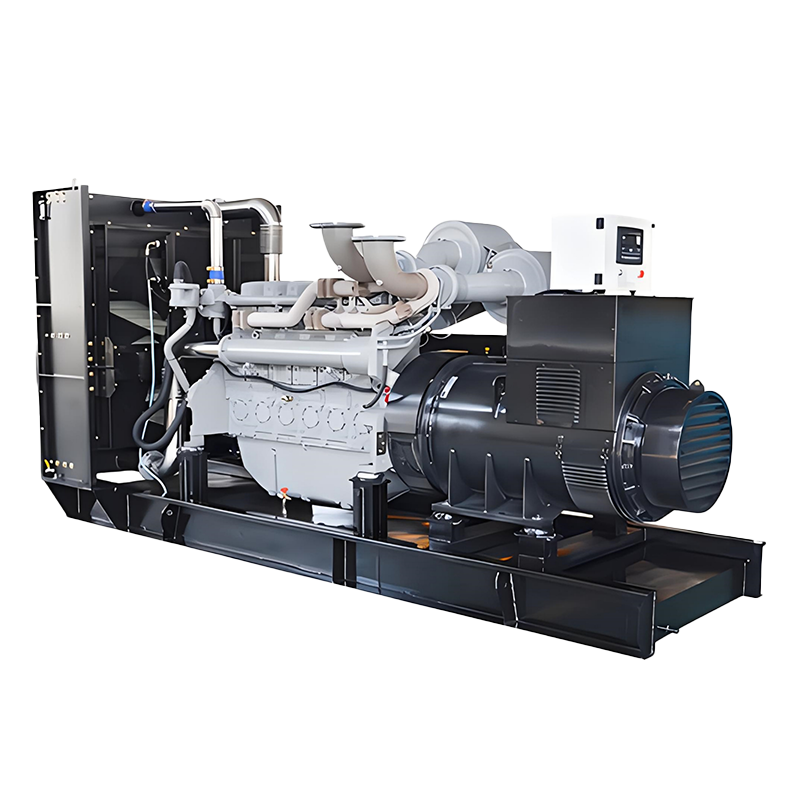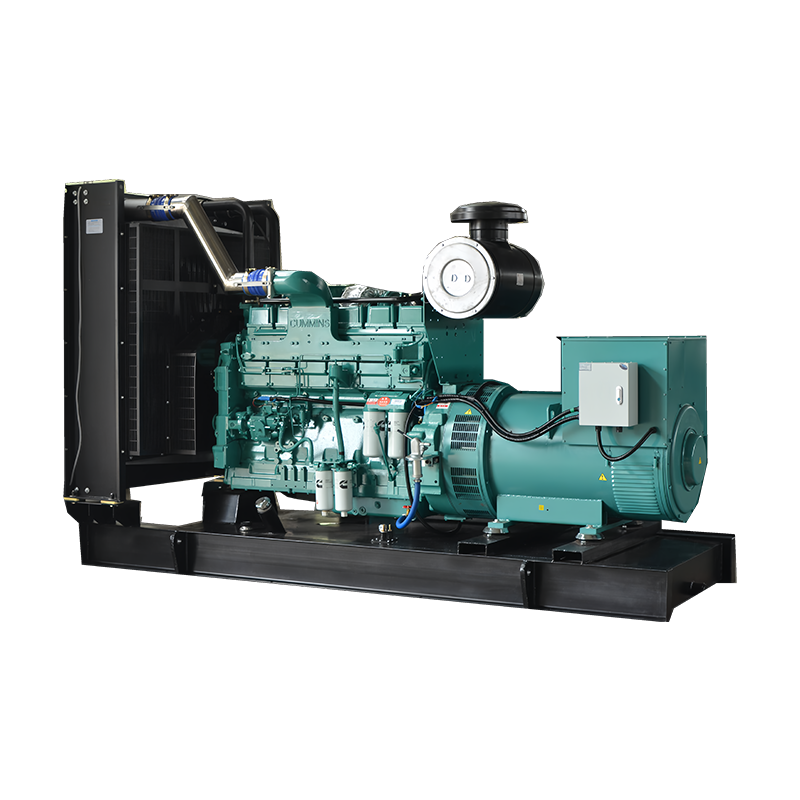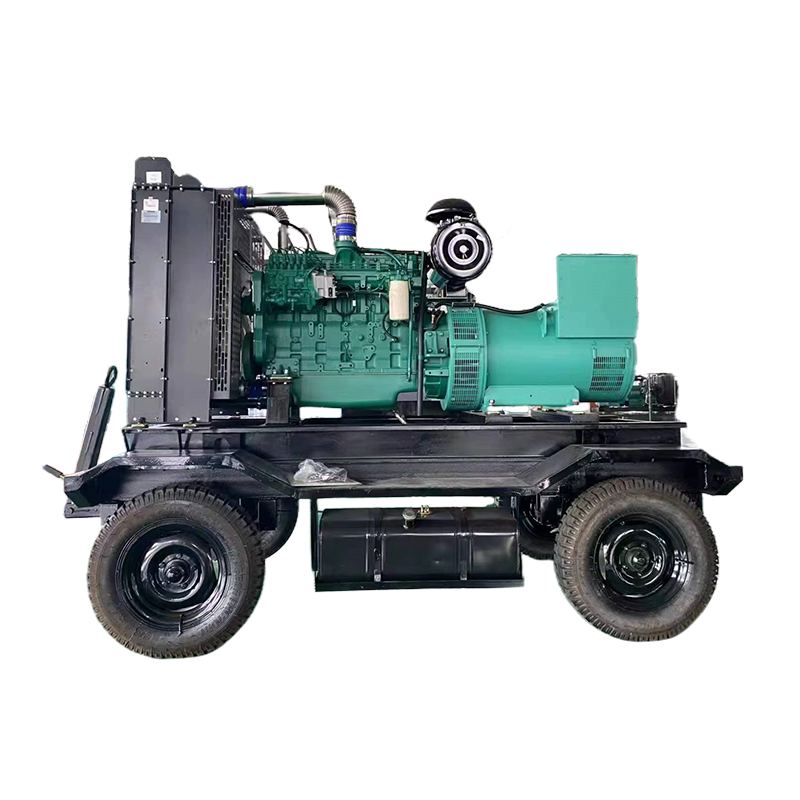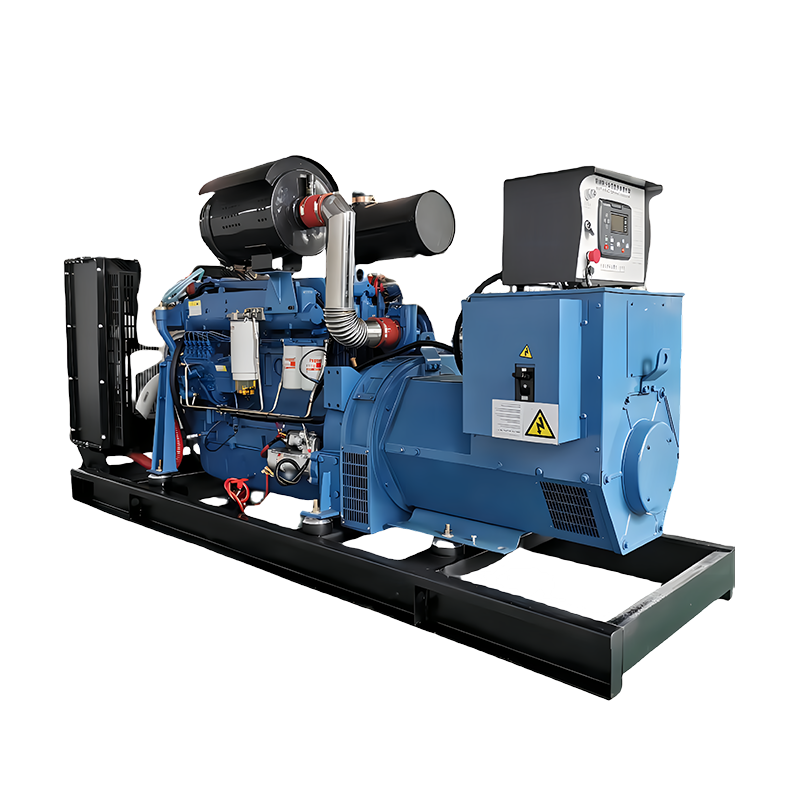Diesel generator vs gasoline generator: Which is better for your needs?
Sep 17, 2025
Content
- 1 Introduction
- 2 Understanding Gasoline Generators
- 3 Understanding Diesel Generators
- 4 Head-to-Head Comparison
- 4.1 1. Initial Cost: Diesel vs. Gasoline
- 4.2 2. Fuel Efficiency: Diesel vs. Gasoline
- 4.3 3. Lifespan and Durability: Diesel vs. Gasoline
- 4.4 4. Maintenance: Diesel vs. Gasoline
- 4.5 5. Noise Levels: Diesel vs. Gasoline
- 4.6 6. Portability: Diesel vs. Gasoline
- 4.7 7. Emissions: Diesel vs. Gasoline
- 4.8 8. Fuel Availability: Diesel vs. Gasoline
- 5 Factors to Consider When Choosing
Introduction
Generators are essential power sources that provide electricity when you’re off the grid, during power outages, or for specific jobsite needs. Whether you’re using it to run your home appliances during an emergency or to power tools at a construction site, choosing the right generator is crucial for ensuring reliability, efficiency, and convenience.
When it comes to generators, two primary types dominate the market: diesel and gasoline. Each has its own set of advantages, drawbacks, and ideal applications. Understanding these differences can help you make an informed decision on which one suits your power needs the best.
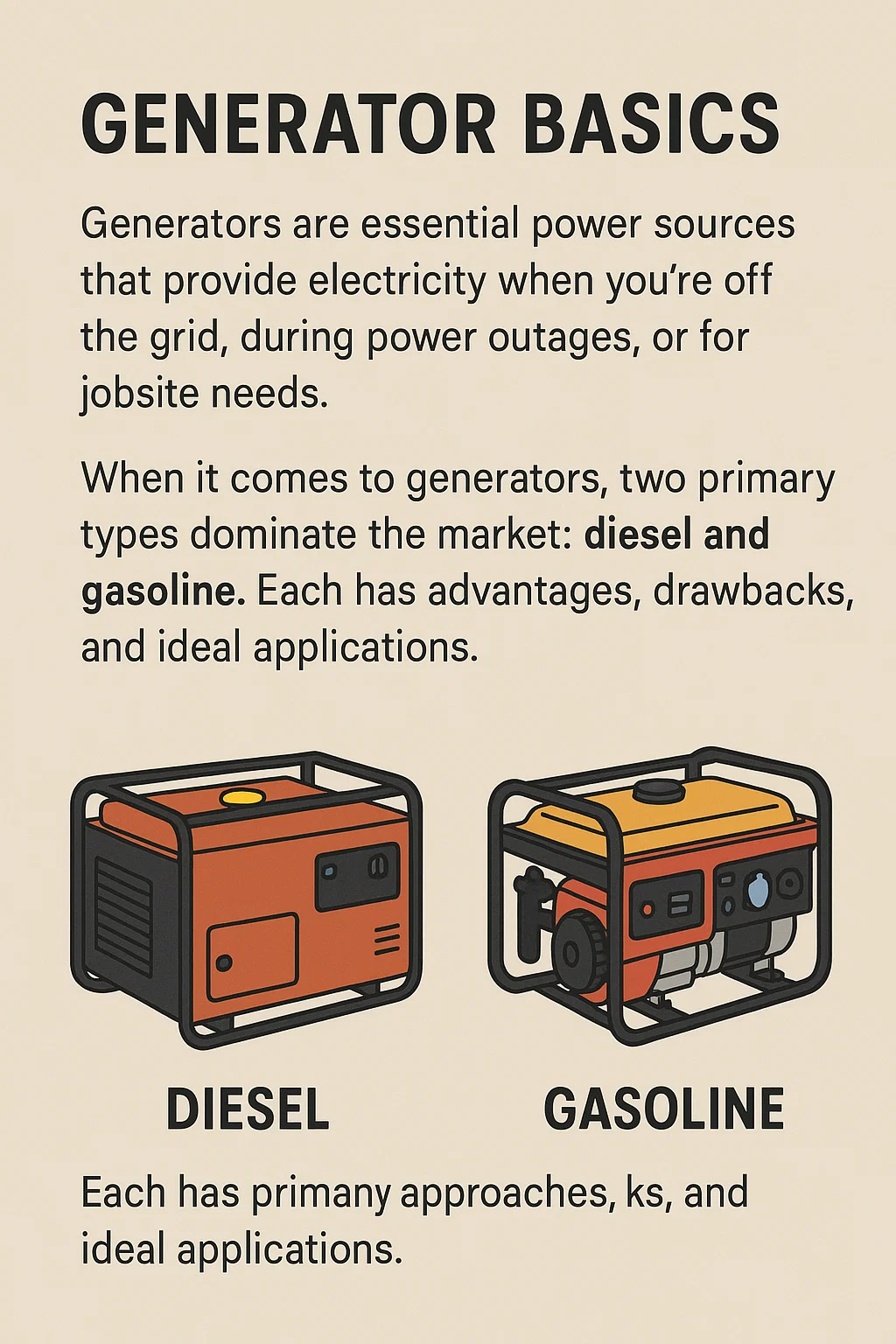
Understanding Gasoline Generators
Gasoline generators are one of the most common types of portable power sources. They work by using a gasoline engine to generate electrical power, making them ideal for short-term use in various situations. These generators are known for their convenience and ease of use, making them a popular choice for homeowners, campers, and DIY enthusiasts alike.
How Gasoline Generators Work
Gasoline generators use an internal combustion engine powered by gasoline. When you start the engine, it drives a rotor that generates electricity through a process known as electromagnetic induction. The generator then outputs this electrical energy for your devices, appliances, or tools. Most gasoline generators are designed for portability, featuring a compact frame and wheels, allowing users to easily move them from one location to another.
Pros of Gasoline Generators
-
Lower Initial Cost
One of the most significant advantages of gasoline generators is their lower upfront cost. Gasoline generators are generally more affordable than diesel generators, making them a popular choice for those on a budget or for casual users who don’t require constant power. -
Lighter and More Portable
Gasoline generators tend to be lighter and more compact compared to their diesel counterparts. This makes them easier to transport, which is especially useful for outdoor activities like camping or tailgating, or for job sites where mobility is important. -
Readily Available Fuel
Gasoline is widely available and easy to store, making it a convenient fuel choice for most people. Whether you're filling up at the gas station or storing a few extra cans at home, access to fuel isn’t typically a problem. This accessibility is a major benefit in emergency situations when quick refueling may be necessary.
Cons of Gasoline Generators
-
Higher Running Costs
While gasoline is cheaper than diesel per gallon, gasoline generators are generally less fuel-efficient, meaning they require more fuel to produce the same amount of electricity. Over time, this can lead to higher operating costs, especially if you're using the generator frequently. -
Shorter Lifespan
Gasoline generators typically have a shorter lifespan compared to diesel models. The high RPM (revolutions per minute) of gasoline engines tends to cause more wear and tear, which means these generators may need more frequent replacements or repairs. -
More Maintenance Required
Gasoline generators require more frequent maintenance than diesel generators. You’ll need to regularly check the oil, air filter, and spark plugs to keep the engine running smoothly. If not properly maintained, gasoline generators can experience engine issues, reduced performance, and increased fuel consumption. -
Higher Risk of Carbon Monoxide Poisoning
Like all internal combustion engines, gasoline generators produce carbon monoxide (CO), a dangerous, odorless gas that can be lethal if inhaled in high concentrations. It's critical to never run a gasoline generator in an enclosed space, and to ensure proper ventilation when using it outdoors.
Ideal Uses for Gasoline Generators
Gasoline generators are well-suited for short-term or intermittent power needs. Some of the most common use cases include:
-
Camping and Recreational Activities: Gasoline generators are small, portable, and ideal for powering lights, fans, small appliances, and charging devices while you're out in the wilderness.
-
Emergency Home Backup Power (Short-Term): For occasional power outages, a gasoline generator can provide the temporary backup power you need for critical household appliances like refrigerators, lights, and medical devices.
-
Small Power Tools on Job Sites: Gasoline-powered generators are perfect for powering smaller tools at construction or DIY job sites where portability and ease of use are essential.
In short, if you're looking for a generator that offers flexibility, portability, and relatively low initial costs, a gasoline generator is an excellent option, especially for non-continuous or emergency power needs. However, if you're planning to use your generator on a regular or long-term basis, you may want to consider other options, such as diesel generators, due to the higher long-term operational costs.
Understanding Diesel Generators
Diesel generators are known for their reliability, fuel efficiency, and long lifespan. They operate similarly to gasoline generators but are powered by diesel fuel, which has its own unique set of advantages and drawbacks. Diesel generators are typically used in situations where long-term, heavy-duty power is required, making them a popular choice for businesses, large-scale construction projects, and off-grid living.
How Diesel Generators Work
Diesel generators use a diesel engine to generate electricity. Like gasoline generators, diesel engines rely on an internal combustion process to convert fuel into mechanical energy, which is then transformed into electrical power. However, unlike gasoline engines, diesel engines use a compression-ignition process, where the air is compressed to a much higher pressure, causing it to heat up enough to ignite the diesel fuel. This leads to greater efficiency and fuel economy, which is one of the key reasons diesel generators are favored for high-demand applications.
Pros of Diesel Generators
-
Better Fuel Efficiency and Lower Running Costs
Diesel generators are known for their superior fuel efficiency. Diesel fuel contains more energy per gallon than gasoline, and diesel engines tend to extract more energy from that fuel. This means that diesel generators require less fuel to produce the same amount of electricity, making them more economical for long-term use. For businesses or users who need a generator running consistently, this efficiency can lead to significant cost savings over time. -
Longer Lifespan and Greater Durability
Diesel engines are built to withstand heavy use and high stress, which means diesel generators typically have a longer lifespan than gasoline generators. With proper maintenance, a diesel generator can last for many years, often exceeding 10,000 hours of operation before major parts need to be replaced. This makes them an excellent choice for continuous or high-demand power needs. -
Suitable for Heavy-Duty and Continuous Use
Diesel generators are designed to handle heavy loads and continuous operation. They can run for longer periods without overheating or wearing out, which makes them ideal for applications where reliable, long-lasting power is necessary. This includes large construction projects, industrial facilities, and businesses that cannot afford downtime. -
Reliability in Harsh Conditions
Diesel engines tend to perform better in extreme weather conditions and are less prone to freezing in cold climates compared to gasoline engines. They also tolerate more rugged usage, making them ideal for outdoor or off-grid scenarios where the generator may be subjected to rough environments.
Cons of Diesel Generators
-
Higher Initial Cost
One of the biggest drawbacks of diesel generators is their higher upfront cost. Diesel engines and the associated components are generally more expensive to manufacture, which makes diesel generators pricier compared to gasoline models. The higher initial investment may not be justifiable for those with short-term or limited power needs. -
Heavier and Less Portable
Diesel generators are typically larger, heavier, and less portable than gasoline generators. While this is often a trade-off for the increased power capacity and durability, it can be a disadvantage if you need to move the generator frequently or if you're working in locations where portability is a priority. -
Noisier Operation
Diesel engines are generally louder than gasoline engines, especially under heavy load. While newer models incorporate noise reduction technology, diesel generators tend to produce more noise, which can be a concern in residential areas or in applications where noise levels need to be kept to a minimum. -
Emissions Concerns (More Pollutants)
Diesel engines produce more pollutants than gasoline engines, including nitrogen oxides (NOx) and particulate matter. These emissions can contribute to air pollution and environmental concerns, especially in areas with strict environmental regulations. While modern diesel generators are designed to meet emission standards, they may still not be as environmentally friendly as gasoline models, especially in sensitive areas.
Ideal Uses for Diesel Generators
Diesel generators are often the preferred choice for heavy-duty, high-demand, and long-term applications. Some of the most common use cases include:
-
Primary Power Source for Off-Grid Living: For those living off the grid, diesel generators can provide reliable, consistent power for homes, cabins, or remote properties where access to the electrical grid is unavailable.
-
Backup Power for Businesses and Critical Infrastructure: Diesel generators are commonly used as backup power for hospitals, data centers, factories, and other businesses that rely on uninterrupted electricity for operations. They can run for extended periods, making them ideal for long-term outages.
-
Heavy-Duty Power Tools and Equipment: Diesel generators can handle the power demands of large construction equipment, welders, air compressors, and other industrial machinery, making them the go-to option for construction sites and large projects.
-
Construction Sites: The durability and reliability of diesel generators make them well-suited for construction sites where power is required for tools, lighting, and equipment in areas that may lack stable access to electricity.
In short, if you require consistent, long-term power and are willing to invest in a higher initial cost, a diesel generator can be an excellent solution. They're best suited for high-demand applications, industrial use, and off-grid living, where fuel efficiency, durability, and reliability are top priorities. However, the additional weight, noise, and emissions considerations may make them less suitable for residential or recreational use where portability and environmental impact are more important.
Head-to-Head Comparison
When choosing between a diesel generator and a gasoline generator, it's essential to weigh key factors such as cost, efficiency, lifespan, maintenance, portability, and noise levels. Below, we'll compare both types of generators across several important categories to help you make the best choice for your specific needs.
1. Initial Cost: Diesel vs. Gasoline
-
Gasoline Generators: Typically, gasoline generators are less expensive upfront. The cost of a gasoline-powered model is generally lower because gasoline engines are simpler to manufacture and have fewer components.
-
Diesel Generators: Diesel generators usually come with a higher initial cost. The diesel engine itself is more robust and designed for heavy-duty use, which makes it more expensive to produce. However, this higher upfront cost can be offset by the savings in fuel efficiency and longevity if you plan to use the generator regularly.
Verdict: Gasoline generators are the more budget-friendly option if you need a generator for occasional or short-term use.
2. Fuel Efficiency: Diesel vs. Gasoline
-
Gasoline Generators: Gasoline generators tend to be less fuel-efficient than diesel ones. They consume more fuel for the same output of electricity, meaning you'll need to refuel more often, especially during extended use.
-
Diesel Generators: Diesel engines are known for their superior fuel efficiency. Diesel fuel has a higher energy density than gasoline, and diesel engines extract more power from each gallon of fuel. This makes diesel generators ideal for long-term, continuous use.
Verdict: Diesel generators win for fuel efficiency, offering more power per gallon of fuel.
3. Lifespan and Durability: Diesel vs. Gasoline
-
Gasoline Generators: Gasoline engines are designed for lighter use and typically have a shorter lifespan compared to diesel engines. They often last between 2,000 and 3,000 hours before major components need to be replaced.
-
Diesel Generators: Diesel generators are built for heavy-duty use and tend to last much longer, often reaching 10,000 hours or more before requiring significant repairs. The durability of diesel engines makes them the preferred option for businesses or applications with constant power demands.
Verdict: Diesel generators are the clear winner in terms of lifespan and durability, making them ideal for long-term use.
4. Maintenance: Diesel vs. Gasoline
-
Gasoline Generators: Gasoline engines require more frequent maintenance, including oil changes, spark plug replacements, and air filter cleaning. Due to their simpler design, they are easier to repair but often need more attention to keep running smoothly.
-
Diesel Generators: Diesel engines are generally more durable and require less frequent maintenance. They have fewer moving parts and don’t require spark plugs. However, they may need more specialized maintenance, and parts can be more expensive to replace.
Verdict: Diesel generators require less frequent maintenance, but when maintenance is needed, it may be more expensive or specialized.
5. Noise Levels: Diesel vs. Gasoline
-
Gasoline Generators: Gasoline generators tend to be quieter than their diesel counterparts. While not completely silent, they are generally more suited for environments where noise reduction is important, such as residential areas or recreational use.
-
Diesel Generators: Diesel engines are typically louder than gasoline engines, especially under heavy load. The noise can be an issue in areas where noise sensitivity is a concern, such as campgrounds or quiet residential neighborhoods.
Verdict: Gasoline generators are quieter, making them the better choice for noise-sensitive environments.
6. Portability: Diesel vs. Gasoline
-
Gasoline Generators: Gasoline generators are generally lighter and more portable. Their compact size and lighter weight make them easy to move around, which is ideal for recreational use, camping, or transporting to job sites.
-
Diesel Generators: Diesel generators are typically heavier due to the robust construction of the diesel engine. While some models are portable, they are generally more cumbersome and less convenient to move compared to gasoline-powered generators.
Verdict: Gasoline generators win in terms of portability, especially for users who need a lightweight and easy-to-transport option.
7. Emissions: Diesel vs. Gasoline
-
Gasoline Generators: Gasoline engines produce fewer emissions than diesel engines, particularly in terms of nitrogen oxides (NOx) and particulate matter. They are generally considered more environmentally friendly, especially in areas with strict emission regulations.
-
Diesel Generators: Diesel engines produce more emissions, including higher levels of NOx and particulate matter, which contribute to air pollution. However, modern diesel engines are equipped with emissions-reducing technologies like catalytic converters and diesel particulate filters to meet regulatory standards.
Verdict: Gasoline generators have lower emissions, making them the more environmentally friendly choice in terms of air quality.
8. Fuel Availability: Diesel vs. Gasoline
-
Gasoline Generators: Gasoline is widely available, especially in urban areas, and is easy to store in portable fuel containers. This makes gasoline generators convenient for use in most locations.
-
Diesel Generators: Diesel fuel is also widely available, especially in rural areas and for commercial use. However, diesel is often sold at larger fuel stations or truck stops, which may not be as convenient in more urban or residential settings.
Verdict: Both diesel and gasoline fuel are readily available, but gasoline is more accessible in urban areas.
|
Factor |
Gasoline Generators |
Diesel Generators |
|
Initial Cost |
Lower upfront cost. |
Higher upfront cost due to more robust components. |
|
Fuel Efficiency |
Less fuel-efficient; requires more fuel for the same output. |
More fuel-efficient; produces more power per gallon of fuel. |
|
Lifespan and Durability |
Shorter lifespan (2,000–3,000 hours) |
Longer lifespan (10,000+ hours) with proper maintenance. |
|
Maintenance |
More frequent maintenance (oil changes, spark plugs, etc.) |
Less frequent maintenance but may require specialized care. |
|
Noise Levels |
Quieter, better for noise-sensitive environments. |
Louder, especially under heavy loads. |
|
Portability |
Lighter and more portable, ideal for camping and small jobs. |
Heavier, less portable, designed for stationary or heavy-duty use. |
|
Emissions |
Fewer emissions, more environmentally friendly. |
Higher emissions (NOx, particulate matter), but newer models have emission controls. |
|
Fuel Availability |
Widely available, easy to find and store. |
Widely available but may be harder to find in urban areas. |
|
Best For |
Short-term use, recreational activities, emergency backup. |
Long-term, heavy-duty, and continuous use (off-grid, business, construction). |
Factors to Consider When Choosing
When deciding between a diesel generator and a gasoline generator, there are several key factors to consider based on your specific needs. The right choice depends not just on the type of generator but also on how often you'll use it, where you'll use it, and your budget. Here’s a breakdown of the most important factors to think about before making your purchase.
1. Power Needs (Wattage Requirements)
Before choosing a generator, it’s crucial to know how much power you’ll need. This depends on what you plan to run and the total wattage of your devices or appliances.
-
Gasoline Generators: These are generally better for smaller applications where power needs are intermittent or moderate (e.g., camping, small home appliances, or backup power for short periods).
-
Diesel Generators: These are better suited for larger, continuous power demands such as running large machinery, heavy-duty tools, or backup power for businesses and critical infrastructure.
Tip: Always check the wattage of the devices you need to power and choose a generator that can meet or exceed that requirement. Diesel generators are ideal for high-wattage and long-duration needs.
2. Frequency of Use (Occasional vs. Continuous)
How often you plan to use the generator is another critical factor.
-
Gasoline Generators: Best for occasional use, such as during power outages, short-term outdoor activities, or emergency backup. These are perfect for scenarios where you don't need to run the generator continuously for extended periods.
-
Diesel Generators: Ideal for continuous or heavy-duty use. If you're looking for a generator to power a business, off-grid home, or construction site where constant operation is required, a diesel generator is a better choice due to its fuel efficiency and durability.
Tip: For occasional use, gasoline generators will likely serve your needs well. If you're powering an operation that requires uninterrupted power, a diesel generator is more suitable.
3. Budget (Initial Cost vs. Long-Term Running Costs)
Your budget plays a significant role in choosing the right generator. Consider both the initial purchase cost and long-term operational costs like fuel consumption, maintenance, and repair.
-
Gasoline Generators: They have a lower initial cost, making them more affordable upfront. However, because they are less fuel-efficient, they may result in higher running costs over time, especially with frequent use.
-
Diesel Generators: While diesel generators cost more initially, they are more fuel-efficient and typically require less maintenance, which can save money in the long run. They also tend to have a longer lifespan, so they offer better value for long-term use.
Tip: If you're on a tight budget, a gasoline generator might be a good starting point. But for heavy use or business-critical applications, a diesel generator will likely offer better cost-effectiveness in the long run.
4. Portability Requirements
The portability of your generator is important depending on where and how frequently you'll need to move it.
-
Gasoline Generators: These are generally lighter and more compact, making them easy to transport. They are a good option if you need to take the generator to different locations (e.g., camping, outdoor events, or job sites).
-
Diesel Generators: Diesel models tend to be larger and heavier, which can make them less convenient for frequent transport. They are better suited for stationary or semi-permanent installations like construction sites or backup power for buildings.
Tip: If portability is essential for your needs, a gasoline generator would be the better option. For stationary or off-grid power, diesel generators are ideal.
5. Noise Sensitivity
Noise levels can be a concern, especially in residential areas, campgrounds, or recreational settings.
-
Gasoline Generators: These tend to be quieter, making them ideal for situations where you need to minimize noise, such as during camping, outdoor events, or in noise-sensitive environments.
-
Diesel Generators: Diesel engines are typically noisier, especially under load. This may be a problem if you're working in a residential neighborhood or areas where noise levels need to be kept to a minimum.
Tip: If noise is a critical factor, consider a gasoline generator, or look into inverter generators, which are generally quieter than traditional models, regardless of fuel type.
6. Environmental Concerns
Generators produce emissions, but the amount of pollution they create can vary.
-
Gasoline Generators: These produce fewer emissions compared to diesel engines, making them more environmentally friendly in terms of air quality. They also tend to be less noisy, which is a plus for minimizing overall environmental impact.
-
Diesel Generators: Diesel engines typically produce more pollutants (e.g., nitrogen oxides, particulate matter) and contribute more to air pollution. However, newer models come equipped with emission control technology to meet environmental standards.
Tip: If environmental impact is a top concern, gasoline generators tend to be cleaner and quieter. If you require a diesel generator, make sure it meets the latest emission standards.
7. Fuel Availability in Your Area
Fuel availability is an important practical consideration. You need to ensure that you can easily access the fuel required for your generator.
-
Gasoline Generators: Gasoline is widely available and easy to store in smaller quantities. Most urban and suburban areas have gas stations, making refueling easy and accessible.
-
Diesel Generators: Diesel fuel is commonly found in rural areas and at commercial fuel stations, but it might be less accessible in densely populated urban settings. However, it's often used in large-scale operations like farming and industry, so availability isn't generally an issue in these environments.
Tip: If you live in an urban area or need something for short-term use, gasoline generators are more convenient. For rural, remote, or heavy-duty applications, diesel generators might be better suited for your needs.




 English
English Español
Español عربى
عربى